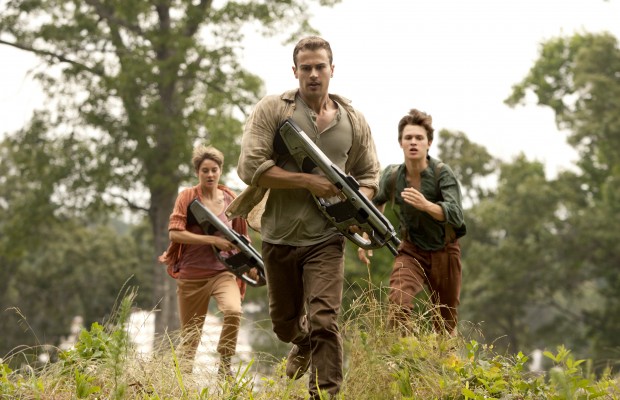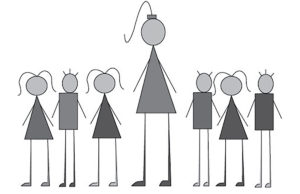Insurgent incites action with meaning

Yet another dystopian book-to-movie adaptation has arrived. The widely anticipated “Insurgent”, the movie adaptation of Veronica Roth’s book and the sequel to the popular “Divergent”, which grossed more than $288 million worldwide, hit theaters on March 20.
“Divergent” is set in a post-apocalyptic society that is divided into factions. The first installation follows Tris Prior (Shailene Woodley) as she switches from her home “faction” to another. “Divergent” ends when Tris discovers a plot to destroy divergents – people who do not fit into just one faction – and society is thrown into chaos and disorder. “Insurgent” continues the story, following Tris and her boyfriend, Four (Theo James), as they attempt to save their society and prevent one faction from completely taking over.
From a book-to-movie standpoint, “Insurgent” makes some major plot changes in an attempt to fit the 525-page novel into a 119-minute time slot. It also takes out some important subplots that made the book so realistic and satisfying. For those who have read the books, Marcus’ character is virtually non-existent in the movie, and Tris and Four’s relationship is all smooth sailing, unlike their rocky romance in the book. However, the movie does stay true to the general themes of the book and places an emphasis on the complexity of humanity and human relationships.
The cast includes many well-known (and well-loved) names, such as Kate Winslet from “Titanic”, as well as Shailene Woodley and Ansel Elgort from “The Fault in our Stars”. Winslet was the epitome of a knowledge-crazed, power-hungry faction leader. Elgort was the perfect image of a deeply conflicted brother who cares about his sister, but is confused by his distorted sense of morality. Woodley, who plays the main character Tris, portrays a girl struggling with identity and a tragedy-stricken past. However, Woodley’s characterization lacks a certain strength of will and determination that is so integral to Tris’ actions and motivations; her portrayal of Tris seems a mere shadow of the strong figure written in the book.
With regard to graphics and action scenes, the movie is extremely satisfying. Every fight ends with a bang, and every larger-than-life situation is very realistic. The many technologies and gadgets that the society enjoys are the perfect combination of crazy and believable. If “Insurgent” is judged as a pure action movie, it is expertly crafted.
“Insurgent” also stands out in the context of other dystopias. There is no imposed love triangle, which sometimes occurs in dystopian book-to-movie adaptations. Not a single character in the movie is purely one dimensional – an impressive feat, given the time limit that a movie necessitates. Even though it leaves out subplots present in the book, “Insurgent” preserves the multiple meanings of every event, and as a result, is deliciously complex.
If you’re looking for a perfect book-to-movie adaptation, “Insurgent” isn’t it. However, if you’re looking for a movie that caters to both an appreciation for human complexity and satisfying thrills, “Insurgent” is the perfect picture.



